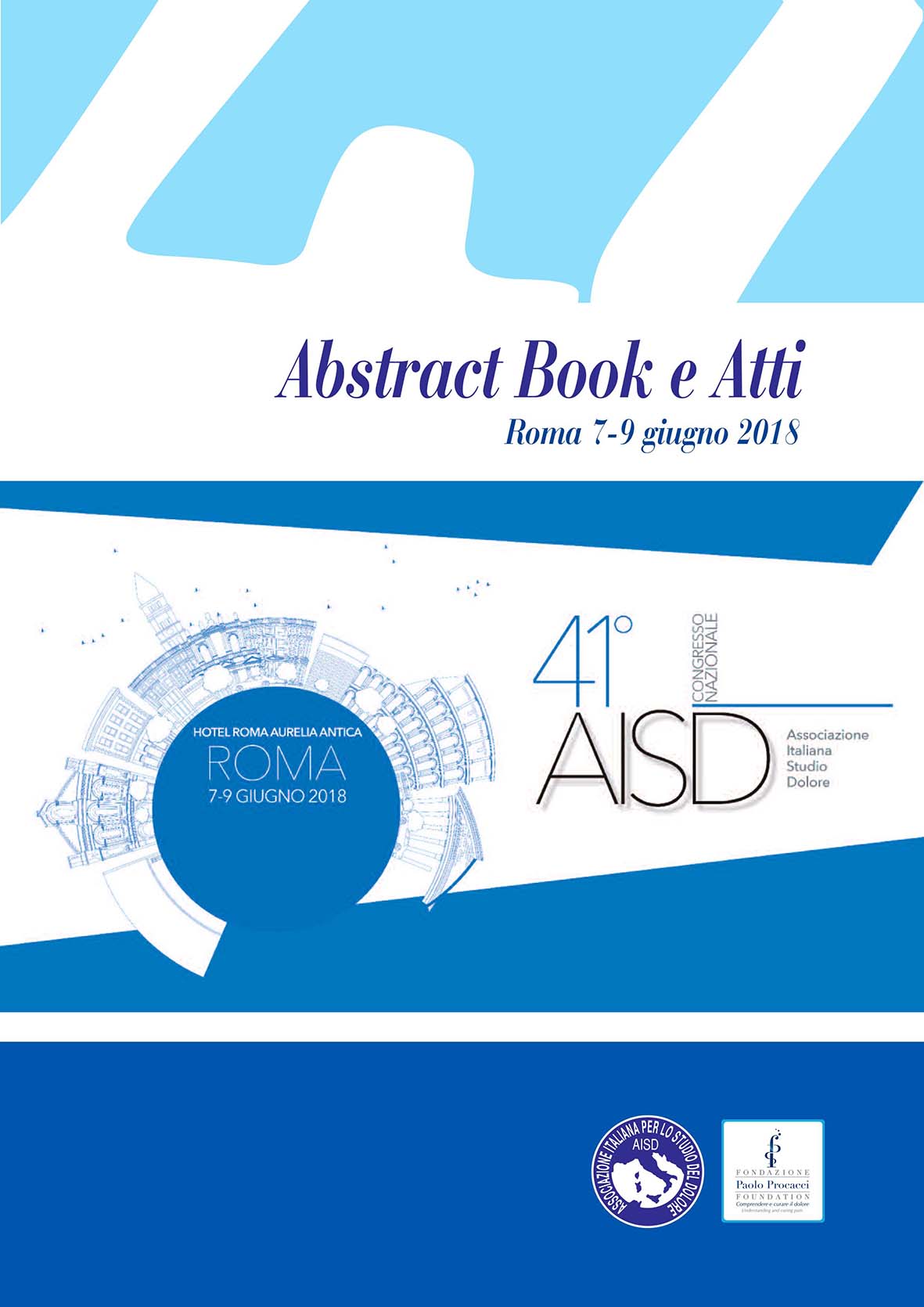Comunicato stampa 41° Congresso AISD 2018, Roma 7-9 giugno

Un appuntamento irrinunciabile per tutti gli specialisti di Medicina del Dolore e per chi vuole avvicinarsi a una disciplina affascinante e complessa. Per curare il dolore acuto e cronico non si può infatti prescindere dal porre al centro il paziente, non solo la malattia, in una visione olistica, perché il dolore presenta differenze precise tra i generi, di frequenza, tipologia e soglia, attiva aree diverse del cervello e a volte necessita di diverse tipologie di farmaci diversi dagli analgesici puri. Per questo motivo si parla di terapia del dolore dedicata al singolo paziente.
Assemblea dei soci 2018
L’Assemblea ordinaria dei Soci è convocata in prima convocazione per il giorno 8/06/2016 alle ore 7.30 e in seconda convocazione il giorno
8 giugno 2018, dalle ore 18.00 alle ore 19.00
presso la sede del 41° Congresso Nazionale AISD, Hotel Roma Aurelia Antica, via degli Aldobrandeschi 223, Roma, per discutere e deliberare sul seguente Ordine del Giorno:
Il programma definitivo del 41° Congresso Nazionale AISD è online

Manca poco, ormai, all'inizio dei lavori del 41° Congresso AISD 2018, a Roma dal 7 al 9 giugno! Il programma definitivo, comprensivo di comunicazioni libere e poster è già online. Clicca qui
Il nuovo direttivo AISD in carica da giugno 2018 a giugno 2020
Congratulazioni al nuovo Consiglio Direttivo dell'Associazione Italiana per lo Studio del Dolore, che risulta così composto:


